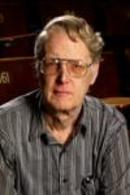R. James Cross
Professor of Chemistry
 Jim Cross, B.S., Yale University, Ph.D., Harvard University, faculty member at Yale since 1966, your quest for the fundamental mechanisms that underlie chemical behavior has revealed new knowledge and inspired generations of students and colleagues.
Jim Cross, B.S., Yale University, Ph.D., Harvard University, faculty member at Yale since 1966, your quest for the fundamental mechanisms that underlie chemical behavior has revealed new knowledge and inspired generations of students and colleagues.
Early in your Yale years you changed our way of thinking about chemical reactions by exploring the basic principles of chemical gaseous molecules, viewing them insightfully as collisions in which energy may be explained, or chemical bonds may break or form, and making possible quantitative predictions of their outcomes. You have been both an experimentalist and a theorist, augmenting your experimental program with theoretical predictions that have required you to advance the frontiers of theoretical chemistry in the process. In the laboratory, you constructed an apparatus for crossing two beams of molecules inside a vacuum chamber, thereby facilitating single, simple molecular collisions. This allowed you to isolate and quantitatively measure the outcomes of chemical events and, as is typical of your work, you analyzed these results with unusual clarity and insight.
More recently, you have been able to squeeze atoms and molecules into tiny molecular cages, the all-carbon nearly spherical “buckyball” molecule and its relatives, the so-called Fullerenes—named for Buckminster Fuller, whose geodisic domes resembled them! You developed novel procedures for putting atoms and molecules inside the buckyballs. You then developed new techniques to probe the otherwise hidden insides of the buckyball and other fullerenes. Your 1996 publication “Noble gas atoms inside fullerenes” in the journal Science signaled the birth of this exciting new field.
Your contributions do not stop there. You, perhaps more than anyone else on Science Hill, have stayed at the forefront of the rapidly changing computer scene. You patiently helped us program in machine language with punch cards, showed us how to interface experiments with the PDP-11, and helped us move from Fortran to Unix to C++—and then to who knows what. Your in-depth understanding and clear explanations of difficult concepts have been of enormous help to your colleagues and students; indeed, you were able to make the most feared course for pre-meds and chemistry majors, P. Chem, into a rational and enjoyable experience. Your dedication to the continued enhancement of the Chemistry Department has been exemplary and continues to this day in your guidance on the Chemistry Building Plan, your oversight of the department web site, and your planning of the graduate student visiting day. On the university front, you have been a member of the Science Degree Committee of the Graduate School for so long that no one remembers how long—it is thought perhaps 20 years—and in that capacity you have been logical, unwavering and professional. Of course we could expect all this from you because, after all—you are a Yalie. We are very proud of that, and so as you retire from the faculty, a chorus of Bulldogs joins in offering you a loud “Bow Wow.”
Tribute Editor: Penelope Laurans